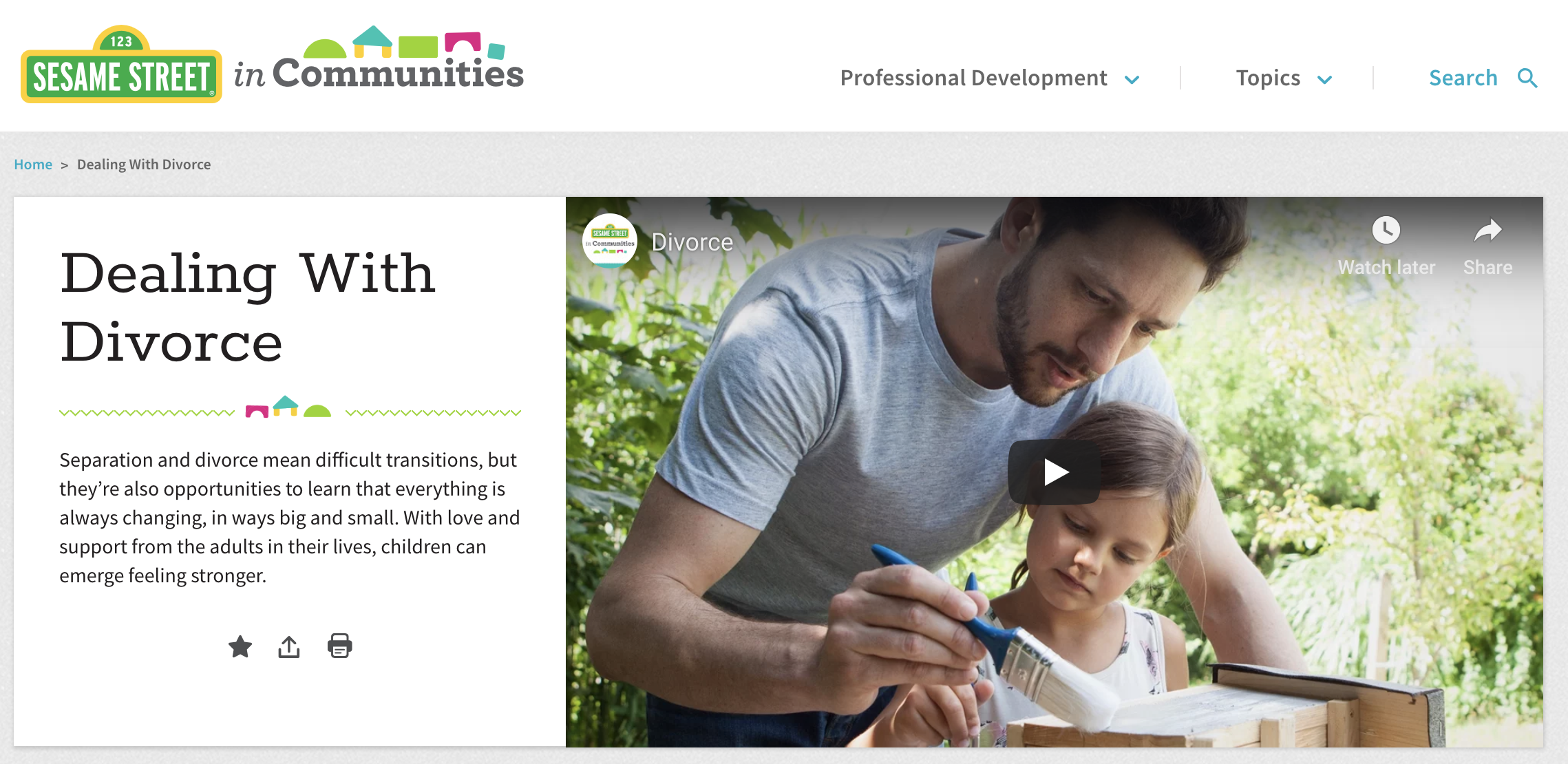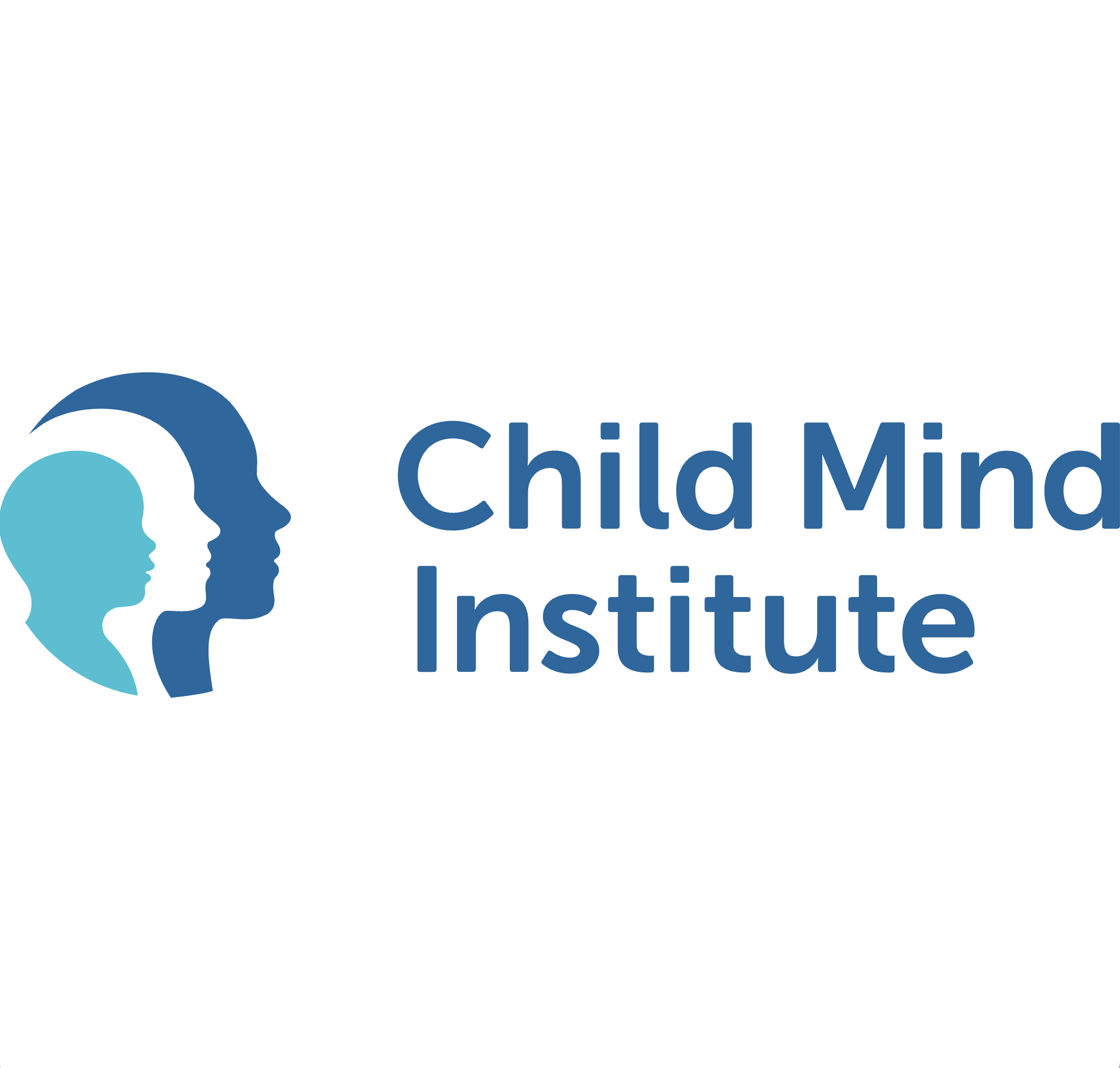Thank you for visiting this page with the intention of focusing on your child, or children, through this time of change. We hope that the resources on this page will provide you with some effective tools and insight to help you talk about divorce with your children, to understand what they might be experiencing, and to help them embrace the road ahead. Know that you’re not alone. For instructions to view this page in Spanish, click on en Español.
Families Connected Resources
Tips for parents
Every divorce will affect the kids involved — and many times the initial reaction is one of shock, sadness, frustration, anger, or worry. But kids also can come out of it better able to cope with stress, and many become more flexible, tolerant young adults.
The most important things that both parents can do to help kids through this difficult time are:
Keep visible conflict, heated discussions, and legal talk away from the kids.
Minimize the disruptions to kids' daily routines.
Confine negativity and blame to private therapy sessions or conversations with friends outside the home.
Keep each parent involved in the kids' lives.
Adults going through separation and divorce need support — from friends, professionals, clergy, and family. But don't seek support from your kids, even if they seem to want you to. (Source: Kids Health from Nemours)
Related resources for parents and guardians
Resources for teens
Curated Gallery of Resources
Clicking on the logos, images, and links below will take you out of the Families Connected website and to the online resource indicated. Families Connected Is not affiliated with these organizations, nor have these organizations paid to have their resources shared here. Please note that, unlike the Families Connected website, some of the websites/articles included here may include pop-up ads. Families Connected will remain open in your browser.
Recommended national resources
Sesame Street offers a comprehensive gallery of child-centric resources, videos, activities, and guides from Sesame Street.
“Separation and divorce mean difficult transitions, but they’re also opportunities to learn that everything is always changing, in ways big and small. With love and support from the adults in their lives, children can emerge feeling stronger.”
The Kids Health from Nemours website covers a number of helpful topics for parents, including Tips for Divorcing Parents and more.
“Every divorce will affect the kids involved — and many times the initial reaction is one of shock, sadness, frustration, anger, or worry. But kids also can come out of it better able to cope with stress, and many become more flexible, tolerant young adults.”
National articles & guides
Children and Divorce (Help Guide)
Healthy Divorce: How to Make Your Split as Smooth as Possible (American Psychological Association)
Coparenting Communication Guide (a downloadable PDF created by Arizona Chapter of the Association of Family and Conciliation Courts is available on the site in Web Resources)
How to tell kids about divorce: An age-by-age guide (Today’s Parent)
Conflict Resolution Skills (Help Guide)
Challenges of same-sex divorce (American Psychological Association)
Ways Divorce Affects Kids, According To The Kids Themselves (Huffington Post)
Divorced with Children: Dating and Blending Families (Good Therapy)
Creating a stress-free divorce for your kid - or getting as close as you can (CNN)
Children and Divorce (AACAP)
Step-parenting tips
Making Step Families Work (American Psychological Association)
Blended Family and Step-Parenting Tips (Help Guide)
Resources from Child Mind Institute
Suggested books
Helping Your Kids Cope with Divorce the Sandcastles Way by Gary Neuman
Does Wednesday Mean Mom’s House or Dad’s?: Parenting Together While Living Apart by Marc Ackerman
The Fresh Start Divorce Recovery Workbook: A step-by-step program for those who are divorced or separated by Bob Burns
What Children Need to Know When Parents Get Divorced by William Coleman
Coparenting After Divorce: A Handbook for Clients by the ABA Family Law Section
Getting To Yes: Negotiating Agreement Without Giving In by Roger Fisher et al.
Caught in the Middle: Protecting the Children of High-Conflict Divorce by Carla Garrity & Mitchell Barris
Impasses of Divorce: The Dynamics of Resolution of Family Conflicts by Janet Johnston
In the Name of the Child: A Developmental Approach to Understanding and Helping Children of High-Conflict and Violent Divorce by Janet Johnston & Vivienne Roseby
Mom’s House, Dad’s House: Making Two Homes for Your Child by Isolina Ricci
How to Avoid the Divorce From Hell and Dance Together at Your Daughter’s Wedding by Sue Talia
Crazy Time: Surviving Divorce and Building a New Life by Abigail Trafford
Getting Past No: Negotiating Your Way from Confrontation to Cooperation by William Ury
Surviving the Breakup: How Children and Parents Cope with Divorce by Judith Wallerstein
What About the Kids? Raising Your Children Before, During, and After the Divorce by Judith Wallerstein & Sandra Blakeslee







